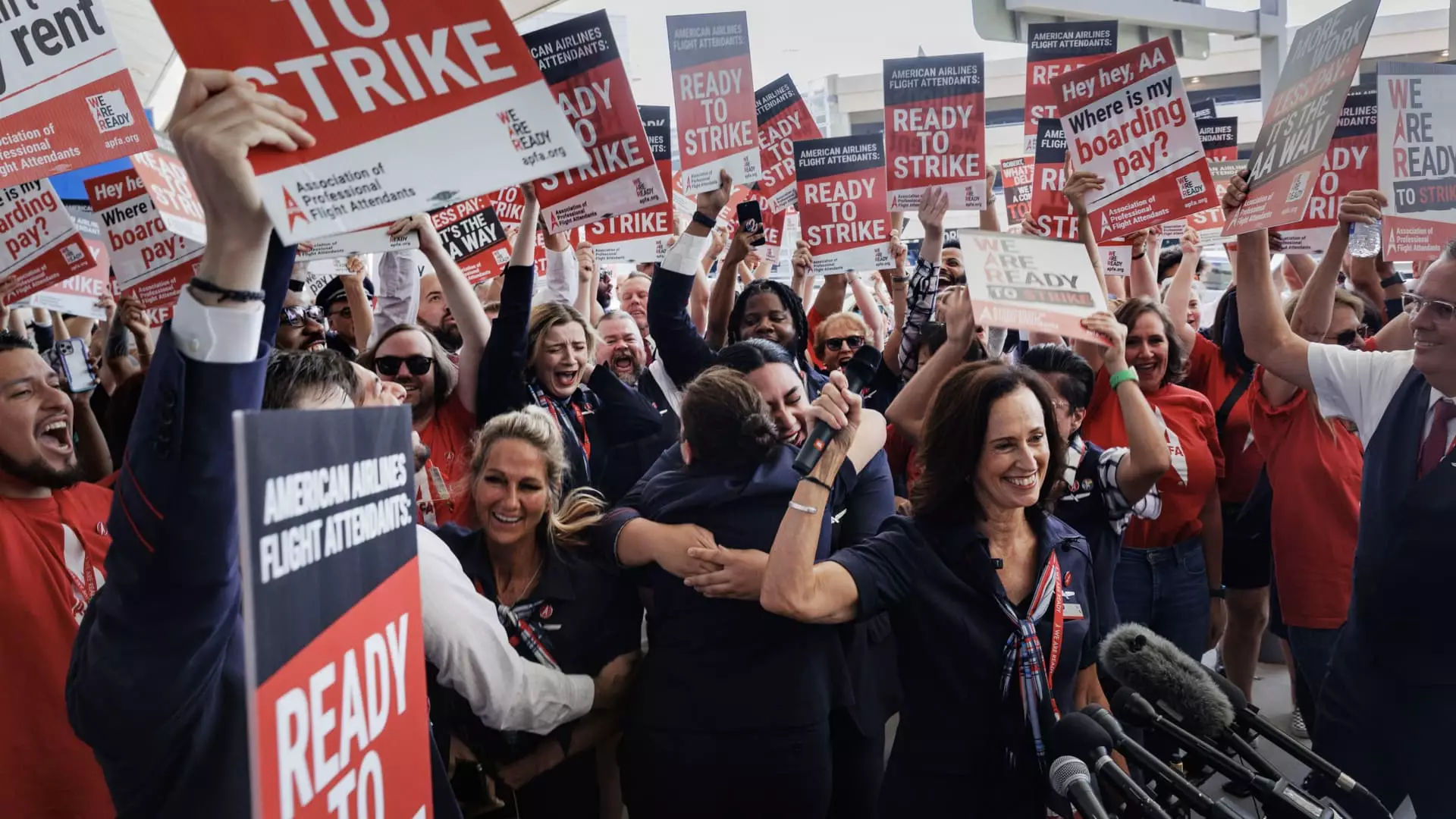The recent approval of a five-year labor agreement by American Airlines flight attendants marks a pivotal moment not just for the airline but also for the broader landscape of labor relations in the aviation industry. With a substantial 87% of voters backing the contract, the decision reflects a collective push for better compensation and working conditions amid a climate of rising living costs and ongoing recovery from the impacts of the COVID-19 pandemic.
The newly ratified contract ensures immediate salary increases of up to 20.5% for flight attendants, addressing long-standing grievances over pay disparities. Furthermore, the agreement includes significant retroactive payments, acknowledging the time and effort expended during extensive negotiations. Julie Hedrick, the president of the Association of Professional Flight Attendants, emphasized that this contract represents a crucial milestone for nearly 28,000 cabin crew members, granting them much-deserved financial relief and recognition of their contributions to the airline’s operational success.
The Context of Contract Negotiations
Prior to this agreement, American Airlines had been navigating a contentious negotiation process that had raised concerns about the potential for strikes. The involvement of key government figures, such as Transportation Secretary Pete Buttigieg and Labor Secretary Julie Su, underscored the urgency of reaching an equitable resolution. Their participation alongside the National Mediation Board sought to mediate a peaceful and effective conclusion to the talks, showcasing the heightened stakes involved for both airline management and its workforce.
The successful negotiation at American Airlines serves as a significant touchstone for the airline industry, particularly as other carriers face similar demands from their flight attendants and other personnel. United Airlines is currently in the negotiation trenches, seeking to draw closer to a new contract, while Alaska Airlines cabin crew members have recently turned down a tentative agreement, illustrating the contentious atmosphere at play.
The fight for fair wages isn’t confined to airlines alone. Various sectors from Hollywood to the auto industry have experienced similar uprisings, with numerous workers advocating for higher pay and better working conditions. These collective actions often echo the sentiments and struggles experienced by airline workers as they recover from the financial shocks of the pandemic.
The approval of the contract by American Airlines flight attendants is not merely a milestone for those within the airline; it represents a broader conversation about workers’ rights and fair compensation in all sectors. As the aviation sector continues to evolve amidst economic pressures and public scrutiny, the successful negotiation at American Airlines may well inspire similar movements across various industries, paving the way for enhanced labor standards and improved workplace environments for all workers.

